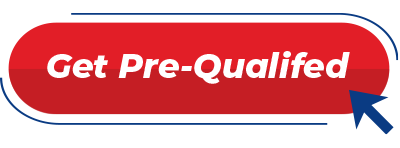by SupremeLending | Jun 7, 2024
Your Guide to Prepare Your Home for Hurricane Season and Severe Weather

Homeownership is a considerable, rewarding experience, offering a place of comfort and security. However, natural disasters are inevitable, so it’s important to keep your home safe and protected in the event of severe weather. HousingWire reported that nearly more than 32.7 million residential properties from Texas to Maine may be at risk of moderate or severe damage this year. To keep your home and family safe, here are seven homeownership tips to prepare your home for hurricane season.
1. Review and Update Your Insurance Policies.
Regularly assess your homeowners and flood insurance policies to ensure you’re adequately covered for potential damage. Make any necessary updates to safeguard your home, especially during hurricane season.
2. Assess the Vulnerability of Your Home.
As you prepare your home for hurricane season, evaluate the current condition of your property. Carefully examine windows, exterior doors, the roof, and nearby trees. This will help you prioritize your preparation efforts and focus on reinforcing any vulnerable areas on your property.
3. Have an Emergency Plan.
Create an emergency plan for your household, including your pets. This should include evacuation routes, shelter sites, an emergency kit of essential food and supplies, and a list of important contacts. Ensure all family members are familiar with the plan.
4. Protect Windows and Doors.
Homeowners in hurricane or tornado-prone areas can install storm shutters or impact resistant glass to help prevent breakage. Plywood can be a temporary solution if these are not available. Another important step to prepare your home for hurricane season is to check for and seal any gaps or cracks around windows and doors. This can help minimize damage from wind-driven rain.
5. Keep Trees Trimmed.
Preparing your home for hurricane season also includes yard maintenance. Dead or overgrown tree limbs are more at risk of breaking and falling. Undergo regular tree service by trimming and removing any hazardous limbs, especially if they’re over the roof of your home. This simple preventive measure could save you from potentially costly repairs, ensure the safety of your property, and support your landscaping.
6. Secure Outdoor Elements.
In the event of possible high winds, make sure any outdoor furniture and grills are secured. Keep umbrellas closed and fold up chairs. You can use furniture and grill covers to protect them from excess rainwater. Bring in more sensitive items such as potted plants, hammocks, and other items that could be displaced in high winds.
7. Reinforce the Roof.
This may be one of the most important steps to prepare your home for hurricane season and may even enhance your home’s value. Be sure to carefully inspect your roof for any loose or damaged shingles, leaks, cracks, rust, or decay. Promptly repair any roof damage to protect the home’s structural integrity. It’s crucial to address any minor roof issues so they don’t escalate into major problems down the road. If a large roof restoration is needed, you may consider a home renovation loan to help fund the project.
BONUS. Plan Backup Power Sources.
If your property is in an area known for frequent storms and power outages, consider adding a generator or heavy-duty battery in the event the power goes out. Have portable phone chargers and power banks readily available. Additionally, keep matches and candles on hand to provide extra lighting if needed.
As you prepare your home for hurricane season, remember that your home is a sanctuary – a place where memories are made and cherished. By taking these proactive steps, you not only protect your investment but also ensure your property is safe. Homeownership is a rewarding experience, and with the right preparation, you can face any storm with confidence and peace of mind.
by SupremeLending | Jun 5, 2024
Understanding a Bank Statement Loan

For entrepreneurs and self-employed individuals, securing a mortgage can often be a challenge. Traditional home loans typically require W-2 tax returns and other documentation that may not accurately reflect the income of self-employed borrowers. This is where Supreme Lending’s bank statement loans come in. Designed for those who run their own businesses, bank statement loans offer an alternative option for self-employed homebuyers without the need for conventional income and tax documentation. Here’s everything you need to know about bank statement mortgages.
What Is a Bank Statement Loan?
A bank statement loan, commonly known as a self-employed mortgage, is a type of home loan designed for those who may have non-traditional sources of income. Simply put, instead of relying on W-2 forms and tax returns, lenders use the borrower’s bank statements to verify their income to approve the loan. This allows self-employed individuals to qualify for a mortgage based on their cash flow rather than their taxable income, which may be reduced by business expenses and tax deductions.
How Do Bank Statement Mortgages Work?
Income Verification
For these types of loans, lenders typically review the past 12 to 24 months of your personal or business bank statements to determine your average monthly income. This provides an accurate picture of your financial health and ability to repay the loan and make monthly mortgage payments.
Down Payment Requirements
The down payment requirements for bank statement loans can vary depending on the lender, but it can generally range from 10% to 20%. A larger down payment amount can sometimes secure more favorable terms and interest rates.
Credit Score and Other Requirements
While these loans are designed to be a more flexible homebuying option, mortgage professionals will still review your credit score, assets, and other financial factors to assess the potential lending risk. A higher credit score may increase your chances of approval for the loan.
Common FAQs and Considerations
Who Can Benefit from a Bank Statement Mortgage?
As mentioned above, these loans are ideal for self-employed borrowers, including small business owners, corporation owners, freelancers, and gig economy workers whose income may be substantial, but not consistently documented like W-2 employees. It’s a great option if you have strong cash flow but your tax returns don’t reflect your true income due to tax write-offs and deductions.
What Types of Properties Can Qualify?
These loans can be used to purchase various types of properties, including single-family homes, condos, townhouses, and in some cases multi-family properties. There are also options for second homes and investment properties depending on the loan type. Each lender has specific property requirements and guidelines, so it’s important to work with a knowledgeable loan officer to help guide you through the process.
What Are Interest Rates?
Interest rates for bank statement loans may be higher than those for Conventional loans due to the potential increased risk to lenders. However, if a borrower has a strong financial profile, it may be possible to lock in a more competitive rate. Additionally, rates are typically lower for a 24-month bank statement loan versus 12 months.
How Is Income Calculated?
For bank statement mortgages, lenders will typically sum up your total deposits over the selected period of time (12 to 24 months) and divide by the number of months to calculate your average monthly income. Business-related expenses and unusual deposits may be excluded to ensure a more accurate income assessment.
What If My Spouse Is a W-2 Employee?
Depending on the loan program and circumstances, lenders may consider a spouse’s income as well when calculating their joint eligibility for a bank statement loan. For example, a business owner’s average monthly income and a spouse’s W2s, paystubs, and employment verification could both be used to determine their combined income.
Benefits of Bank Statement Lending
Owning your own business is part of the American Dream. However, business owners may not qualify for a traditional mortgage to buy their American Dream Home. Bank statement loans offer that freedom. They give self-employed borrowers flexibility to use their true income without being tied down by tax deductions or business expenses. It also opens the door to homeownership for more people in the community—whether it’s their first home or tenth.
If you’re self-employed and ready to explore your mortgage options, contact Supreme Lending today. We’re here to help you navigate the process and find the best loan option to fit your unique needs.
Related Articles:



